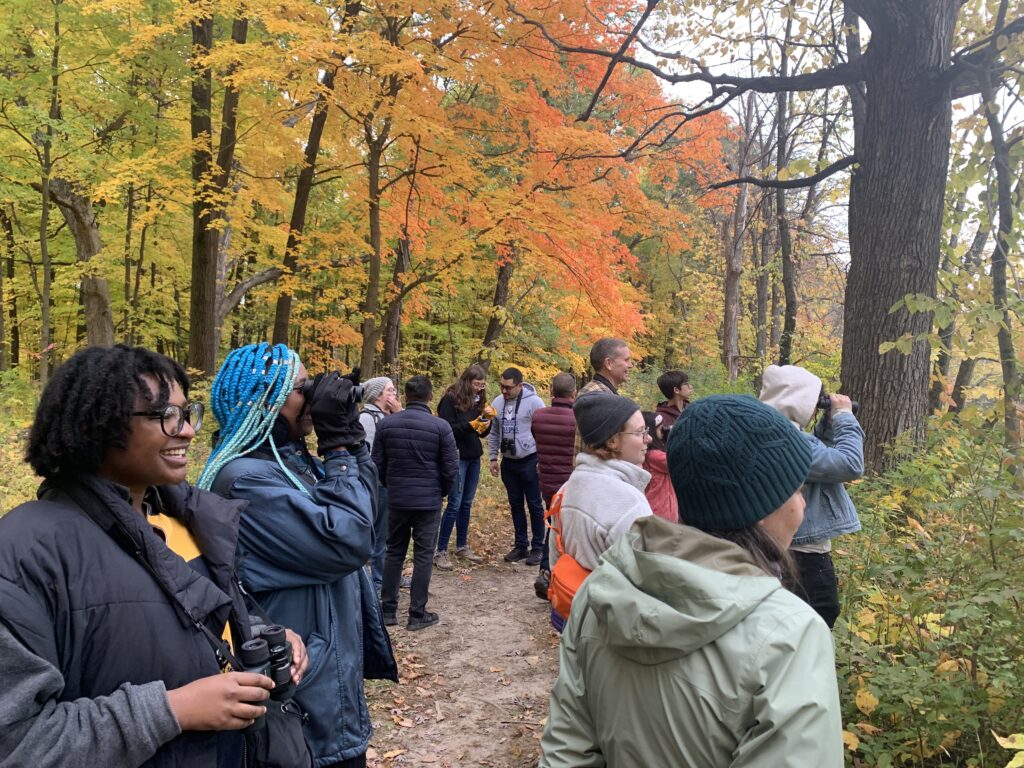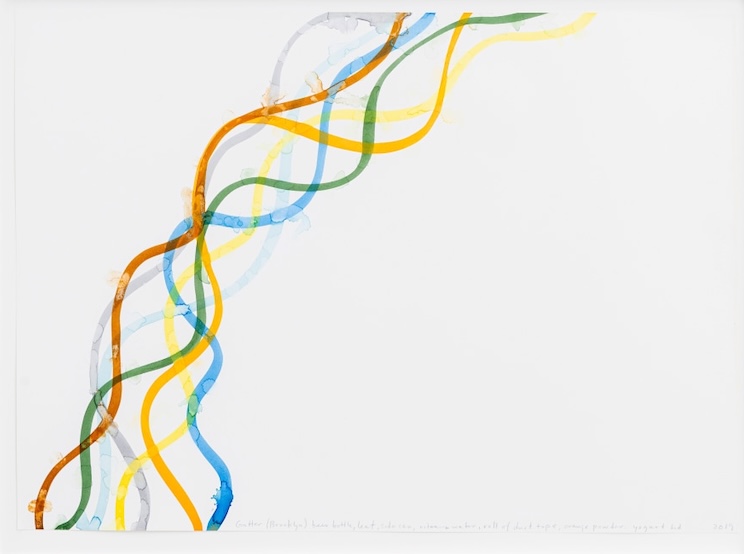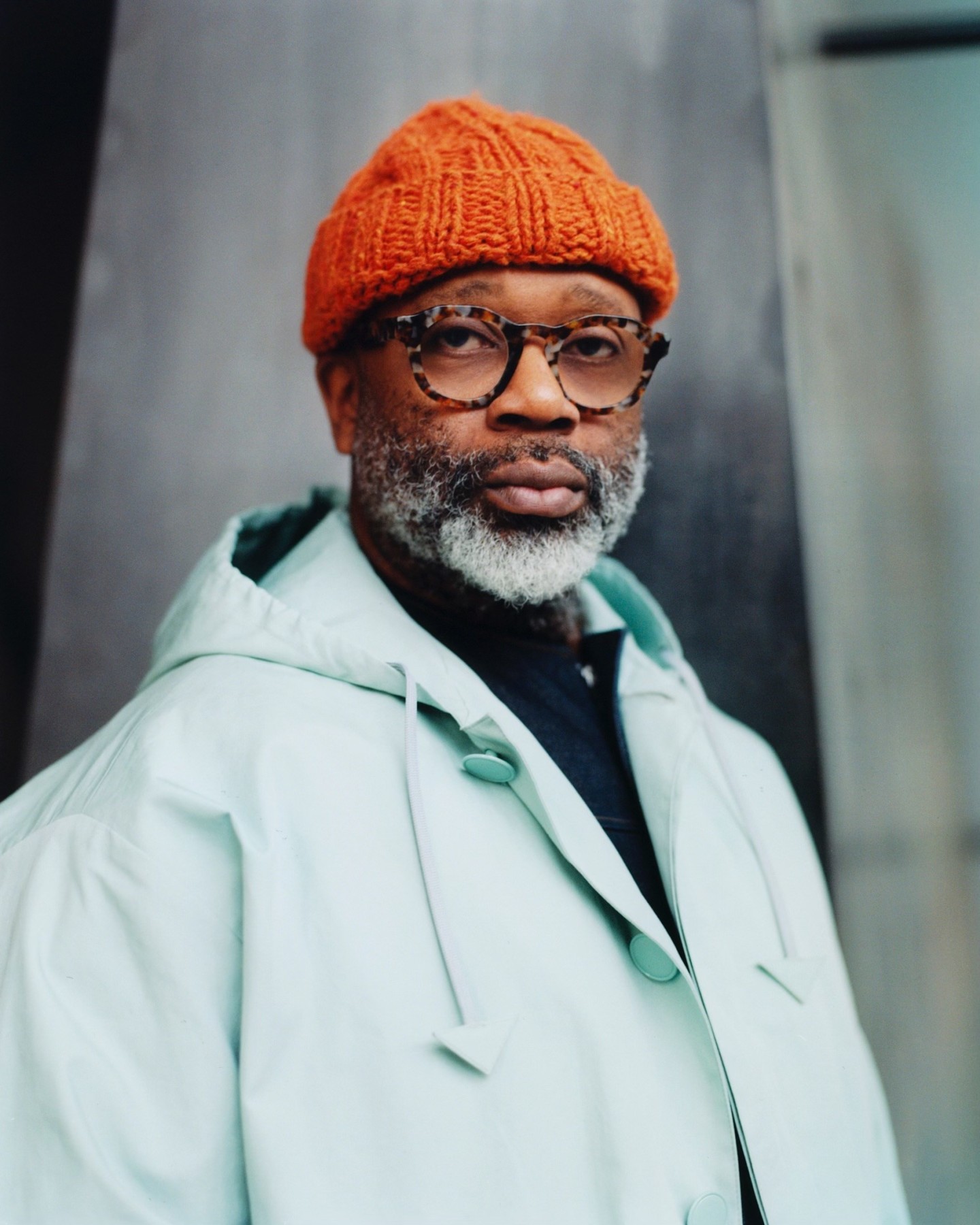MacArthur Foundation Genius Grants: Artist and Designer with Chicago Ties Among 2019 Recipients
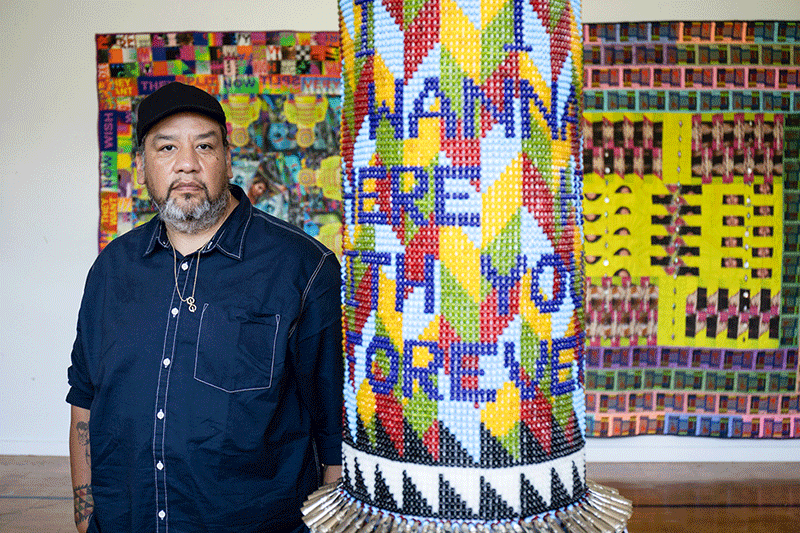
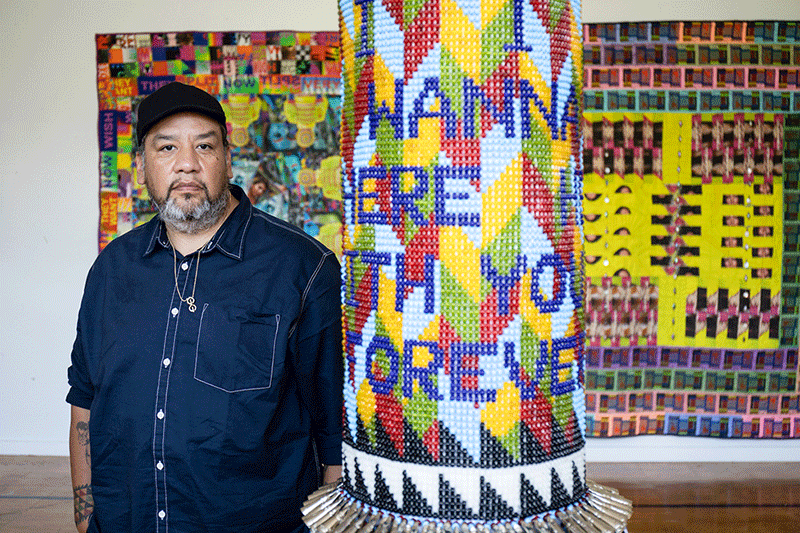
By CGN Staff via PR
Artist Jeffrey Gibson was awarded the prestigious MacArthur Foundation Genius Grant this week.
Gibson combines Native American traditions with the visual languages of Modernism to explore the contemporary confluence of personal identity, culture, history, and international social narratives. Gibson is a member of the Chocktaw and Cherokee nations. He currently lives and works in Hudson, New York.
Growing up, Gibson traveled extensively with his family, living for long periods of time in Germany, Korea, and the United States. While moving from place to place, he found solace and friendship in the music scene, at various times exploring the sounds and social traditions of the punk and rave music of his generation, and the PowWow traditions of his native heritage. These influences helped him to contextualize the power of costume as objects that can transform the wearer, and helped him understand the contemporary desire to be able to take agency over our own identities.
Gibson is represented in Chicago by Kavi Gupta Gallery. An exhibition of his work, Can You Feel It, opened at the gallery's Elizabeth St. location on September 20 and continues through October 19.
More info on Gibson and the award is here.
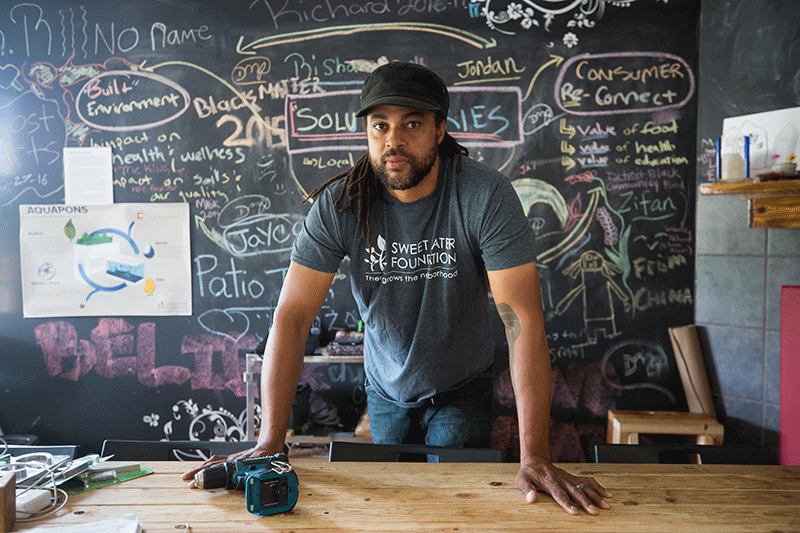
Chicago urban designer Emmanuel Pratt was also named to the fellowship.
Pratt studied architecture and urban design at Cornell and Columbia Universities and co-founded and serves as executive director of the Sweet Water Foundation. Pratt was also the 2017–2018 Interpreter in Residence at the Smart Museum of Art at the University of Chicago, where he hosted a series of intimate dinners across Chicago beginning in Radical [Re]Constructions, his site-specific Threshold installation at the Museum. Each dinner featured nutritious, locally grown food from Sweet Water Foundation and examined a different theme connected to Radical [Re]Constructions: housing, work, health, and education. The interdisciplinary series convened a curated group of diverse individuals around a common table, from the team at Sweet Water Foundation to artists, scholars, practitioners, and civic and community leaders.
“One of the challenges on the South Side and West Side of Chicago is there’s been a depletion of resources, access to capital,” said Pratt in a MacArthur Foundation video. “So a lot of times we don’t start with the dollars and the capital. We start with what assets are there: what humans are there, what spaces are available.”
More info on Pratt and the award is here.
The MacArthur Fellows Program is intended to encourage people of outstanding talent to pursue their own creative, intellectual, and professional inclinations. In keeping with this purpose, the Foundation awards fellowships directly to individuals rather than through institutions. Recipients may be writers, scientists, artists, social scientists, humanists, teachers, entrepreneurs, or those in other fields, with or without institutional affiliations. They may use their fellowship to advance their expertise, engage in bold new work, or, if they wish, to change fields or alter the direction of their careers.
Although nominees are reviewed for their achievements, the fellowship is not a lifetime achievement award, but rather an investment in a person's originality, insight, and potential. Indeed, the purpose of the MacArthur Fellows Program is to enable recipients to exercise their own creative instincts for the benefit of human society.
The Foundation does not require or expect specific products or reports from MacArthur Fellows and does not evaluate recipients' creativity during the term of the fellowship. The MacArthur Fellowship is a "no strings attached" award in support of people, not projects. Each fellowship comes with a stipend of $625,000 to the recipient, paid out in equal quarterly installments over five years.
About this year’s winners, Foundation President John Palfrey said, “From addressing the consequences of climate change to furthering our understanding of human behavior to fusing forms of artistic expression, this year’s 26 extraordinary MacArthur Fellows demonstrate the power of individual creativity to reframe old problems, spur reflection, create new knowledge, and better the world for everyone. They give us reason for hope, and they inspire us all to follow our own creative instincts.”
Editor's Picks
Related:
